LATEST INSIGHTS
Your Present Location: LATEST INSIGHTS-
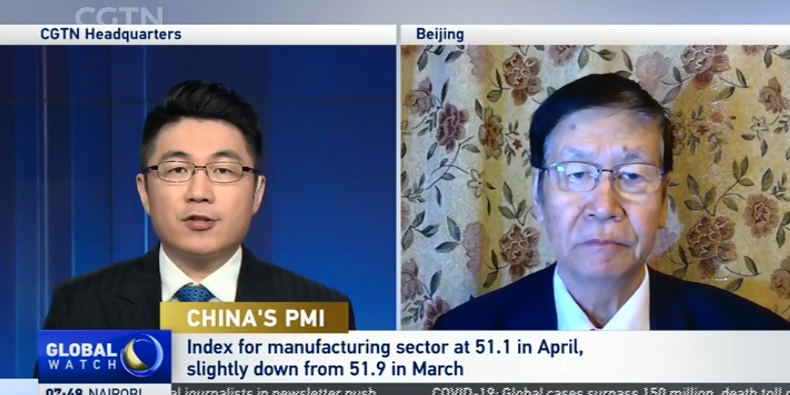
Liu Zhiqin: Views on China's PMI
Liu Zhiqin was interviewed by CGTN Global Watch on 30APR 2021, sharing his viewpoints on China's PMI, holding the view that growth in service sector will slow in April.
2021-04-30 -
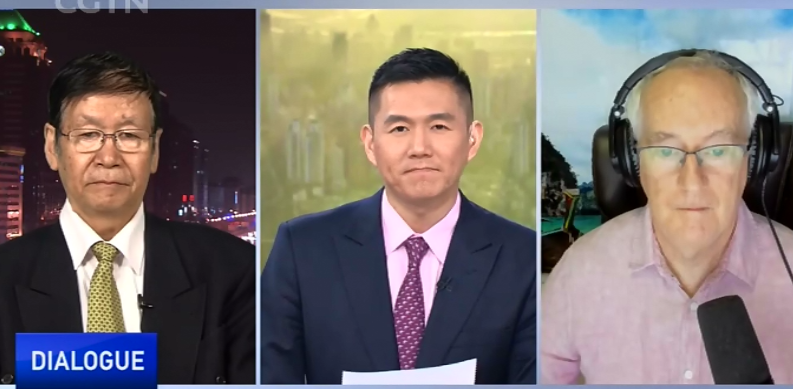
Liu Zhiqin: Asia in Recovery
Liu Zhiqin was interviewed by CGTN Global Business on 28APR 2021, sharing viewpoints on asia in recovery and economic rebound in 2021; also, Asian risks and uncertainties.
2021-04-29 -
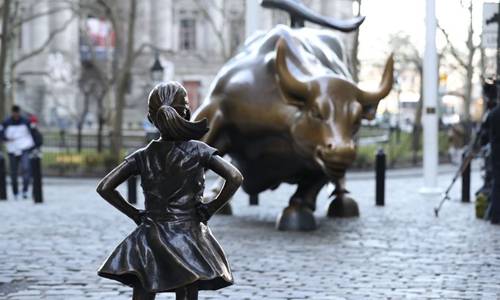
Ding Gang: US still 'king' of contemporary capitalism
Many of the problems that have arisen since the beginning of the 21st century are ultimately the result of American-style capitalism - especially the social divisions in the US itself.
2021-04-29 -

Liu Zongyi: Indian economy looks increasingly bleak with ferocious virus resurgence
While India's ferocious COVID-19 resurgence is shocking the world, some institutions have started to review their estimation for Indian GDP in the 2021-22 fiscal year, with Oxford Economics lowering India's growth to 10.2 percent from 11.8 percent.
2021-04-29 -
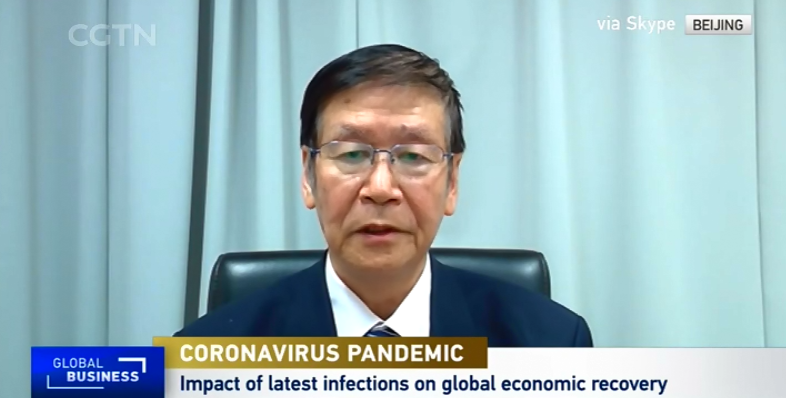
Liu Zhiqin: Views on India's Health Crisis
Liu Zhiqin was interviewed by CGTN Global Business on 27APR 2021, sharing his viewpoints on economic fallout of India's health crisis, impact of India's blockade on global medical supply chains and other available policy room for India's government.
2021-04-28 -
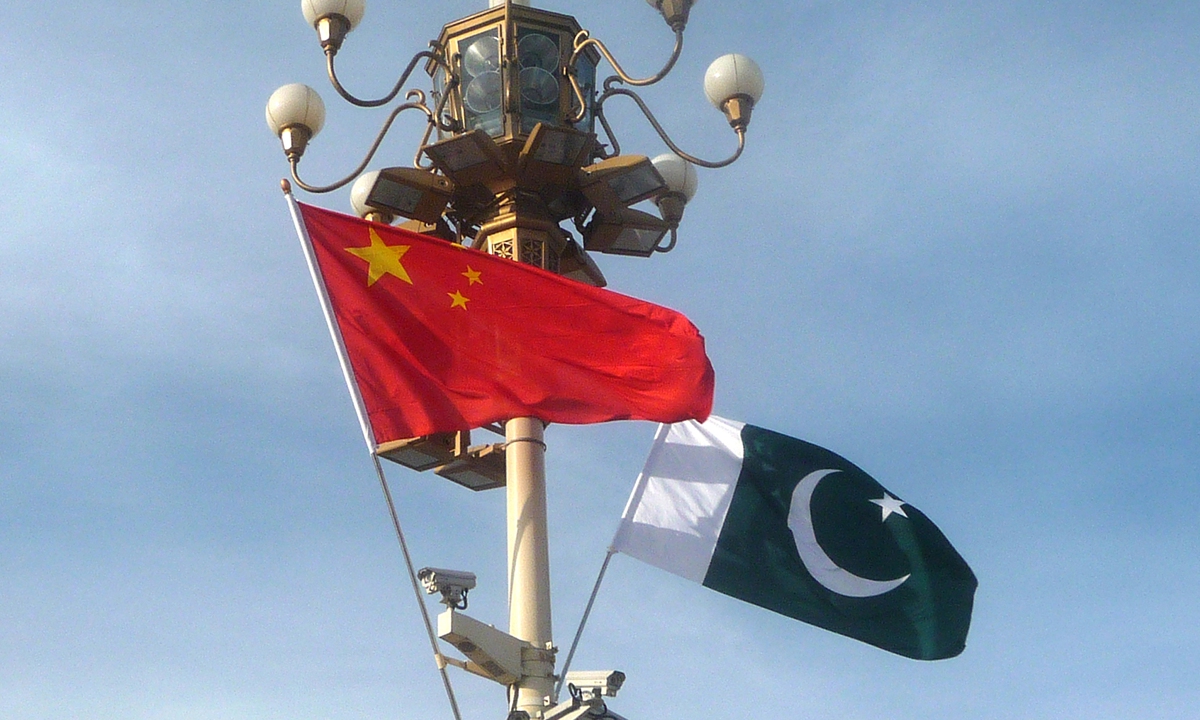
Zhou Rong: Why some people keep rubbing salt in China-Pakistan ties
May 21 marks the 70th anniversary of the establishment of diplomatic relations between China and Pakistan. Islamabad is Beijing's all-weather strategic cooperative partner. In the words of Pakistanis, the time-tested strategic partnership is higher than the Himalayas, deeper than the Arabian Sea, sweeter than honey, firmer than steel, and more precious than eyes. In Chinese words, it is "iron friend."
2021-04-28 -
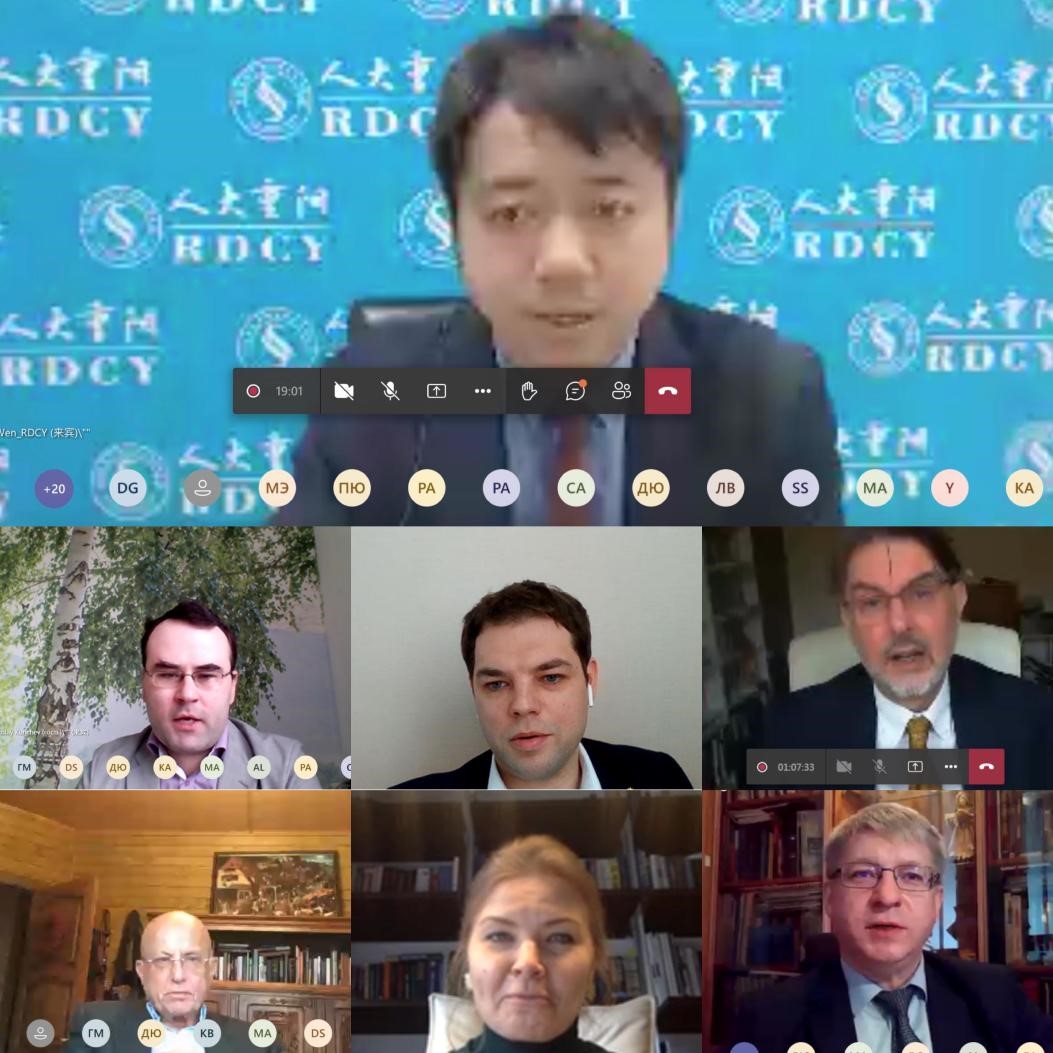
RDCY was invited to participate in a video conference with the National Research University Higher School of Economics
On April 26, 2021, online round table “Turning to Nature: Russia's New Environmental Policy in the Context of the "Green" Transformation of the World Economy and Politics” organized by the National Research University Higher School of Economics was successfully held. Professor Wang Wen, Executive Dean of Chongyang Institute for Financial Studies, Renmin University of China (RDCY), and Deputy Dean of Silk Road School, Renmin University of China, was invited to deliver a speech. The guests discussed the current global climate change situation, the just-convened Leaders Summit on Climate, and Russia's new environmental policy in the context of the global "green" transition.
2021-04-28 -
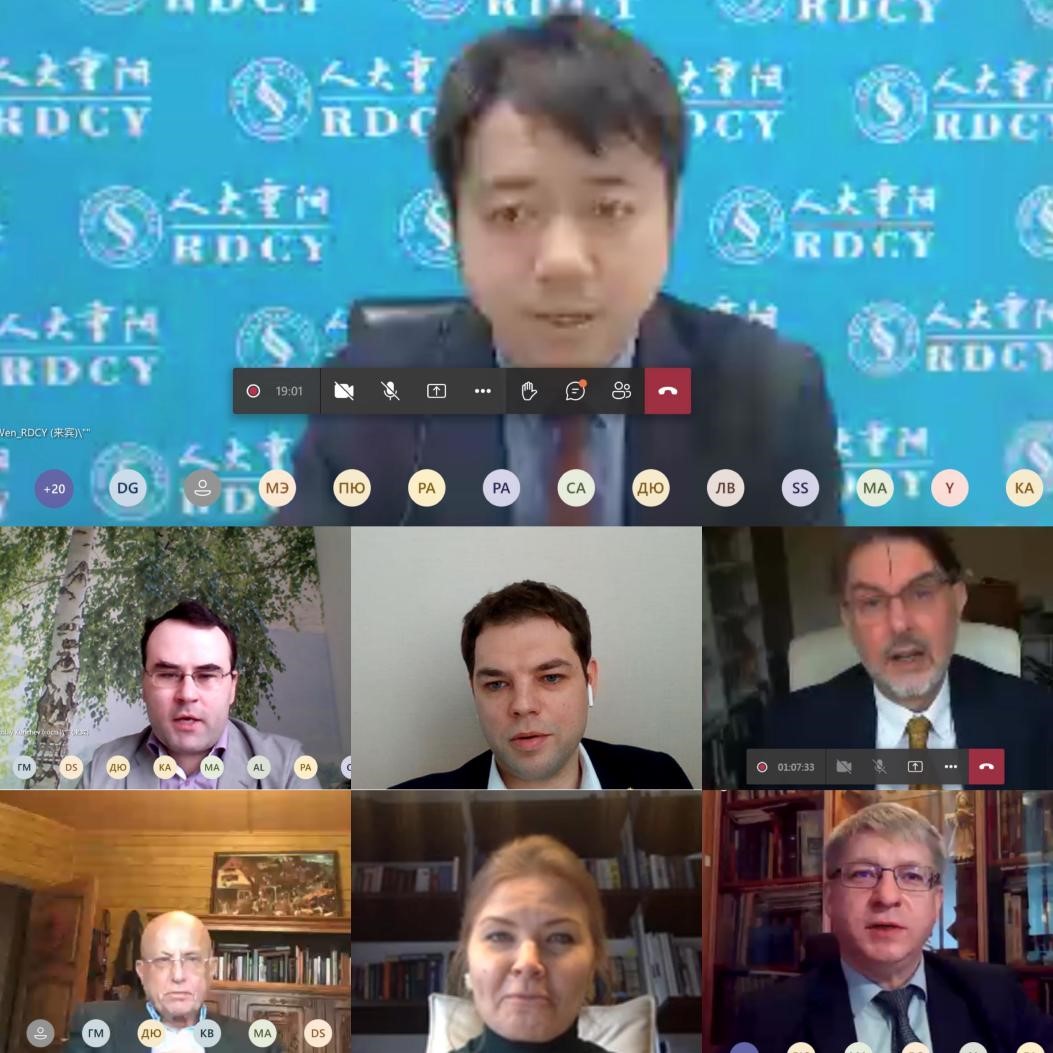
【2021-4-26】"Turning to Nature: Russia's New Environmental Policy in the Context of the "Green" Transformation of the World Economy and Politics" RoundTable
2021-04-28 -

He Weiwen: Biden’s 100 days in office: China-US ties remaining fraught
US President Joe Biden will cross the 100-day mark of his presidency on Friday. As his China policy gradually takes shape, it seems he has adopted much of the Trump administration's wrong path, pushing the bilateral relationship further toward dangerous confrontation.
2021-04-27 -
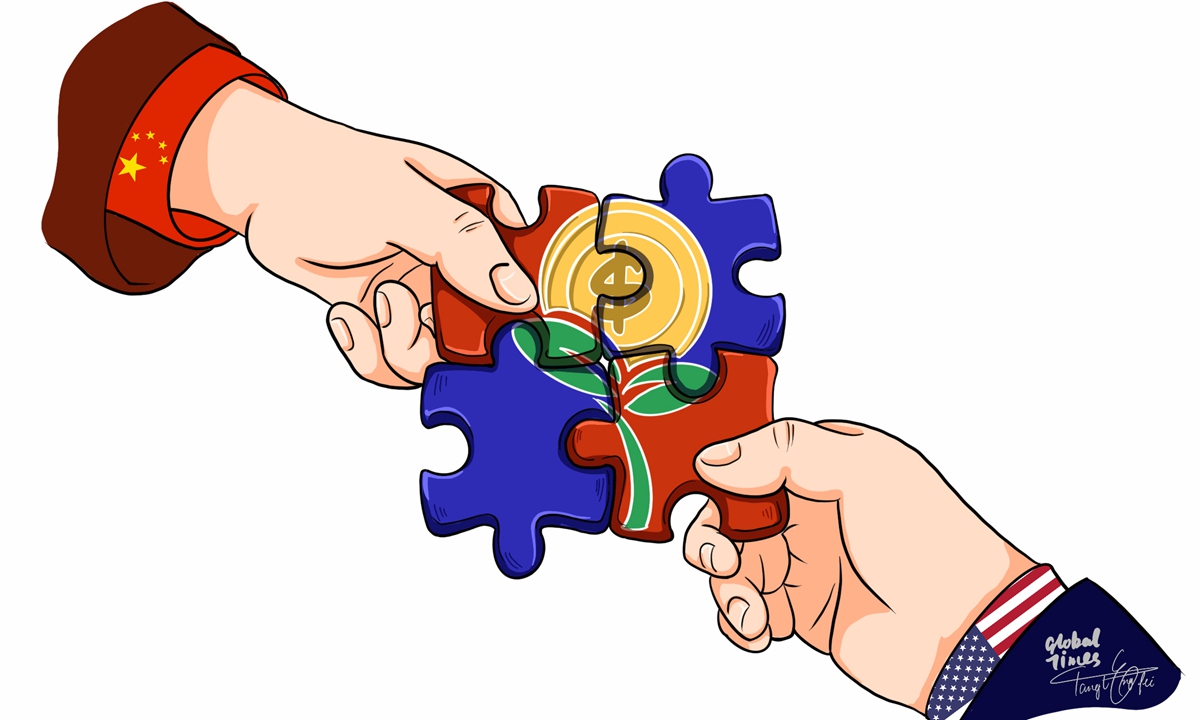
Wang Wen: Green finance key to China-US collaboration
US President Joe Biden held a two-day virtual climate summit attended by 40 other world leaders with the aim to address the global climate crisis. China was one of the participants. Indeed, China and the US are jointly shouldering responsibilities as major powers for climate change, laying the foundation for cooperation in the field of green finance.
2021-04-27 -
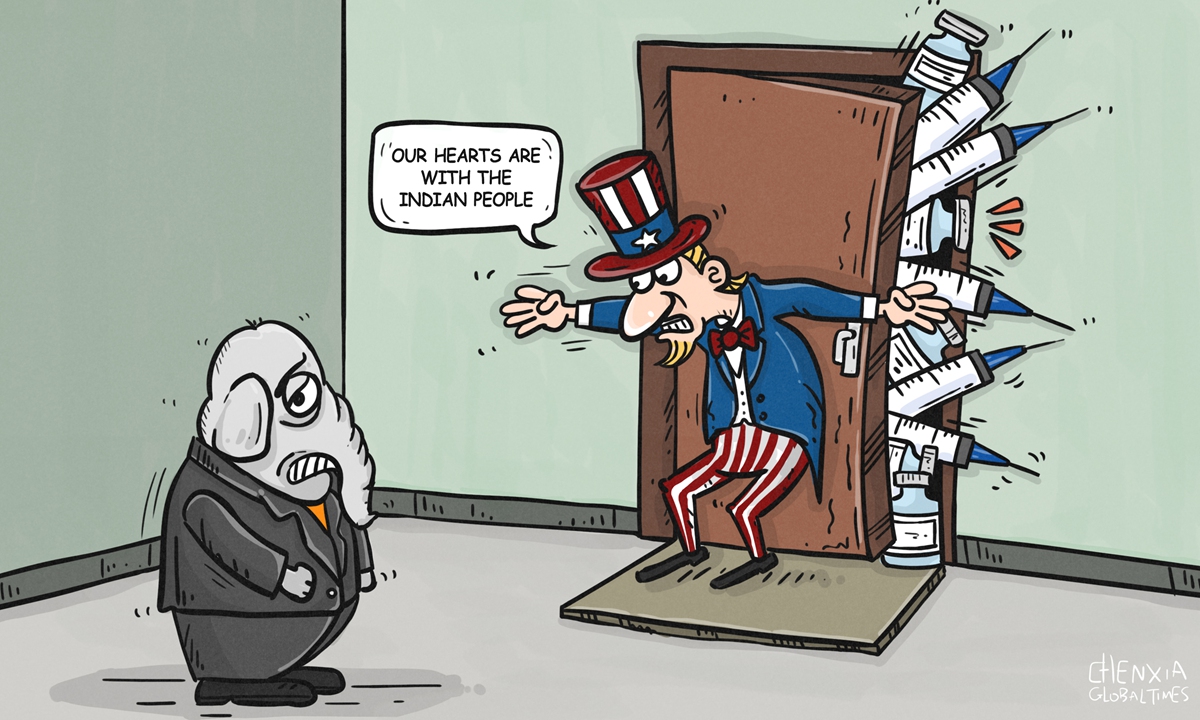
Liu Zongyi: Will US ‘crocodile tears’ prompt Indian elites to reflect on who their allies are
The US’ image among the Indian public is crumbling as India’s conoravirus cases soar, yet the US failed to offer any solid assistance. US Secretary of State Antony Blinken tweeted on Sunday, “Our hearts go out to the Indian people in the midst of the horrific COVID-19 outbreak. We are working closely with our partners in the Indian government…” But the rhetoric was defined by Indian netizens as “crocodile tears.” Most Indian net users who commented under the tweet share one consensus – the US is no friend in times of need.
2021-04-26 -
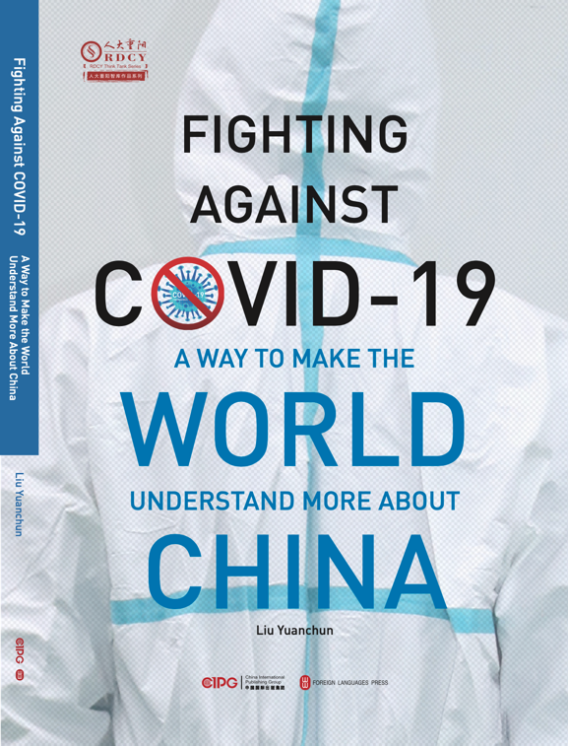
"Fighting-Against COVID-19 A Way to Make the World Understand More About China" was released globally
Fighting-Against COVID-19 A Way to Make the World Understand More About China published by Foreign Language Press, was released globally in Chinese and English in March 2021, and was available in bookstores nationwide and on E-commerce platforms such as JD, Dangdang, Tmall and Amazon. The book is edited by Liu Yuanchun, Vice President of Renmin University of China and Executive Director of Chongyang Institute for Financial Studies, Renmin University of China(RDCY). The book is part of the think tank series of Chongyang Institute for Financial Studies, Renmin University of China(RDCY).
2021-04-25 -

Zhou Rong: Pakistan blast underscores mutual mistrust with US for counterterrorism
A powerful explosion struck the parking lot of a luxury hotel in Quetta, Balochistan province in southwest Pakistan on Wednesday. Officials said at least four people were killed and 12 others wounded. Chinese Ambassador to Pakistan Nong Rong was leading a visiting Chinese delegation that stayed at the hotel. The Chinese delegation was safe and all casualties were of Pakistani nationals, officials said.
2021-04-25 -
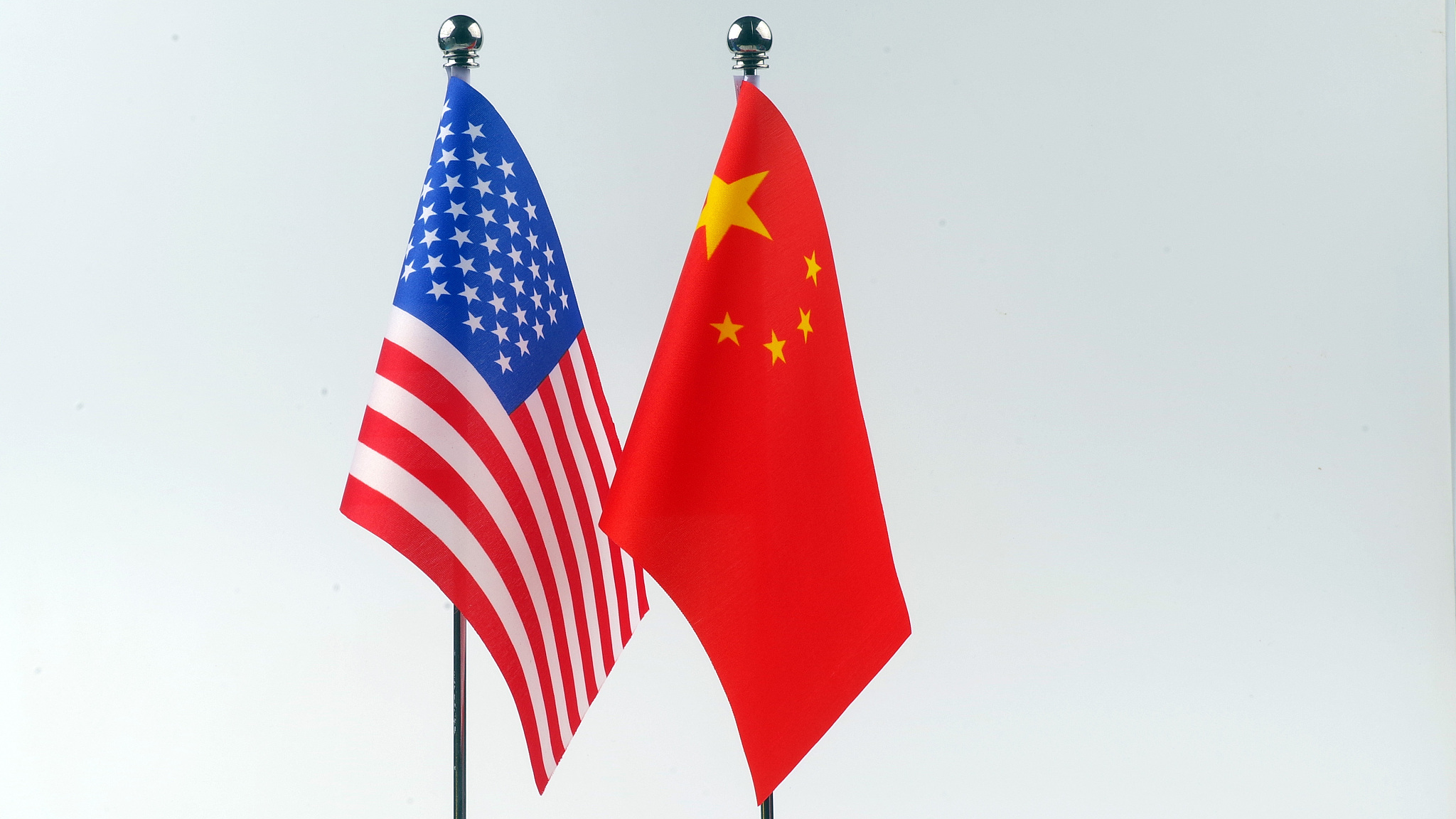
William Jones: Congress' Strategic Competition Act will come back to bite America
The Senate Foreign Relations Committee unanimously passed the Strategic Competition Act of 2021 on April 21. The mastodon legislation will be further the attempts by the U.S. government to monitor and restrict China's technological development with the explicit goal of slowing it down or, indeed, sabotaging it completely.
2021-04-23 -
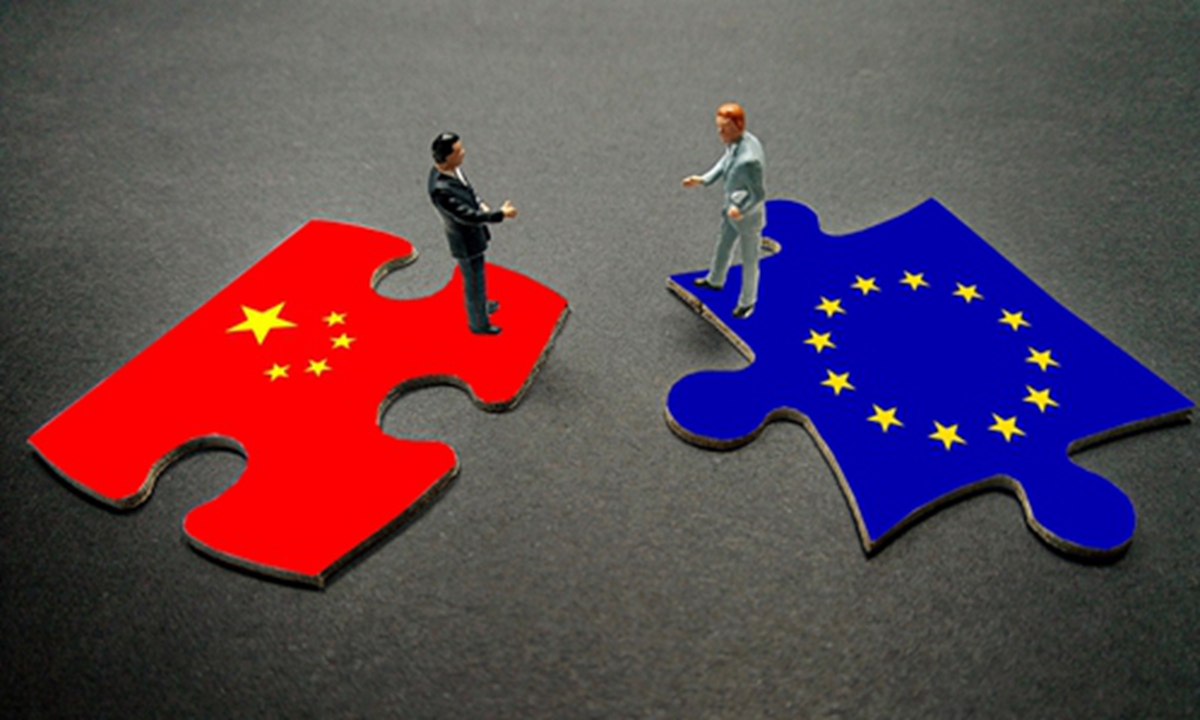
Wang Yiwei:Why China, EU should jointly resist US’ decoupling push
Chinese State Councilor and Foreign Minister Wang Yi on Wednesday had a virtual meeting with German Foreign Minister Heiko Maas and they reached consensus on opposing economic decoupling. Wang said that major economies like China and Germany should jointly resist decoupling, and Maas noted that decoupling is not in any party's interests, according to a statement from the Chinese Foreign Ministry.
2021-04-23 -
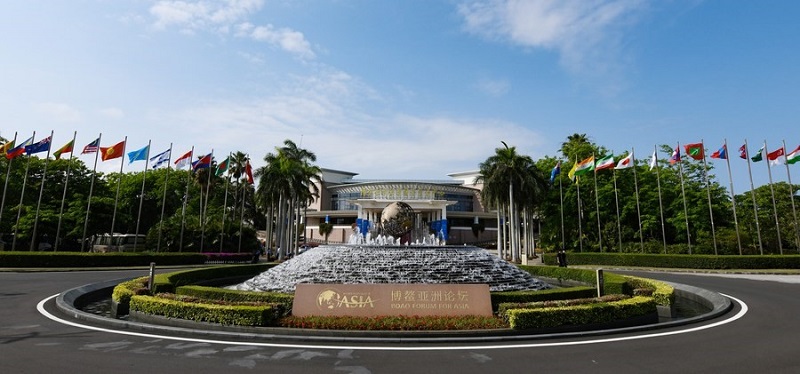
William Jones: A Message of Hope for a Stricken World
An annual gathering of business people and government representatives from the Asia Pacific region and beyond each year at the Boao Forum for Asia in south China’s Hainan Island is always an occasion to gain fresh insights into economic development in the region and the rest of the world. Since taking the helm of the country, President Xi Jinping has addressed the forum’s annual conference multiple times. The theme of this year’s conference is "A World in Change: Join Hands to Strengthen Global Governance and Advance Belt and Road Cooperation." In the backdrop of the major tensions between China and the U.S. and the economic disruption caused by the COVID-19 pandemic that has ravaged the world over the past year, President Xi, in his speech delivered at the opening ceremony of the 2021 conference, presented a pathway forward for the region and the world, based on cooperation and mutual respect between nations and rather than on unilateral decisions of individual countries, while emphas
2021-04-23 -
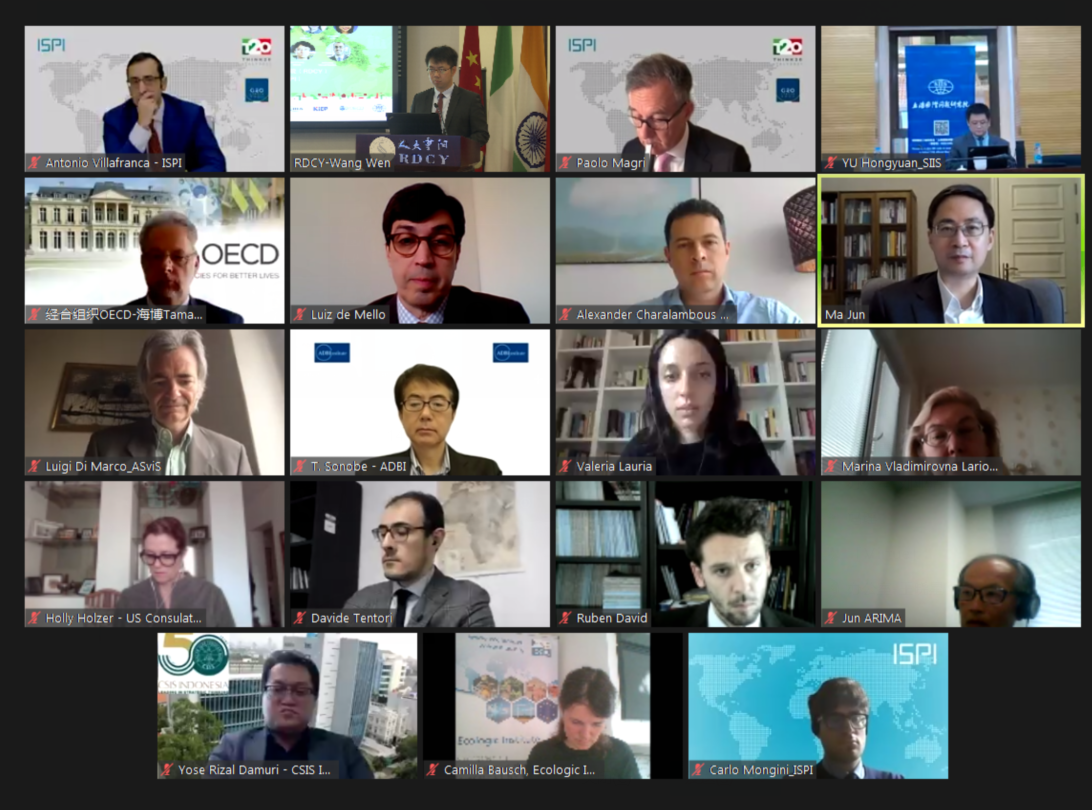
Decarbonization transition should leave no one behind, say experts at Rome meeting
Themed as "Sustainable Recovery for a Green Future," the event was organized by the Institute for International Political Studies -- Italy's national coordinator of the Think20, the G20 body bringing together major think tanks -- and the Chongyang Institute for Financial Studies at Renmin University of China. A panel of experts addressed climate change, energy transition and sustainable growth.
2021-04-23 -
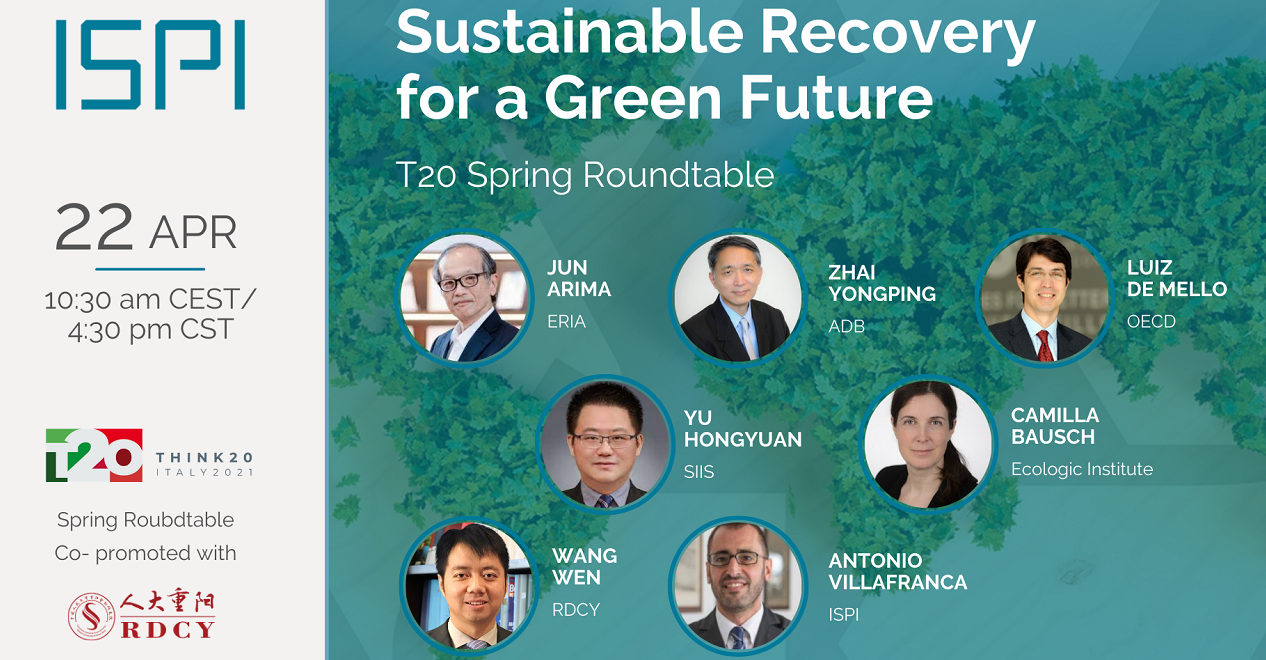
Sustainable Recovery for a Green Future
Climate change, energy transition and sustainable growth are long-standing global challenges. Today they are made even more crucial by the Covid-induced crisis which is urging to find the right balance between the much-needed global recovery and environmental targets. What are the key ingredients of a truly sustainable recovery? How to make this recovery even more consistent with the Paris Agreement objectives? What contribution can be expected from key countries? And what to expect from multilateral efforts and in particular from the Italian G20 in 2021?
2021-04-23 -

Ding Gang: Why US can’t emulate China’s lessons on infrastructure building
After the US identified China as a strategic competitor, US President Joe Biden announced his plan to invest more in chips, infrastructure and many other areas to maintain US' advantages over China.
2021-04-22 -
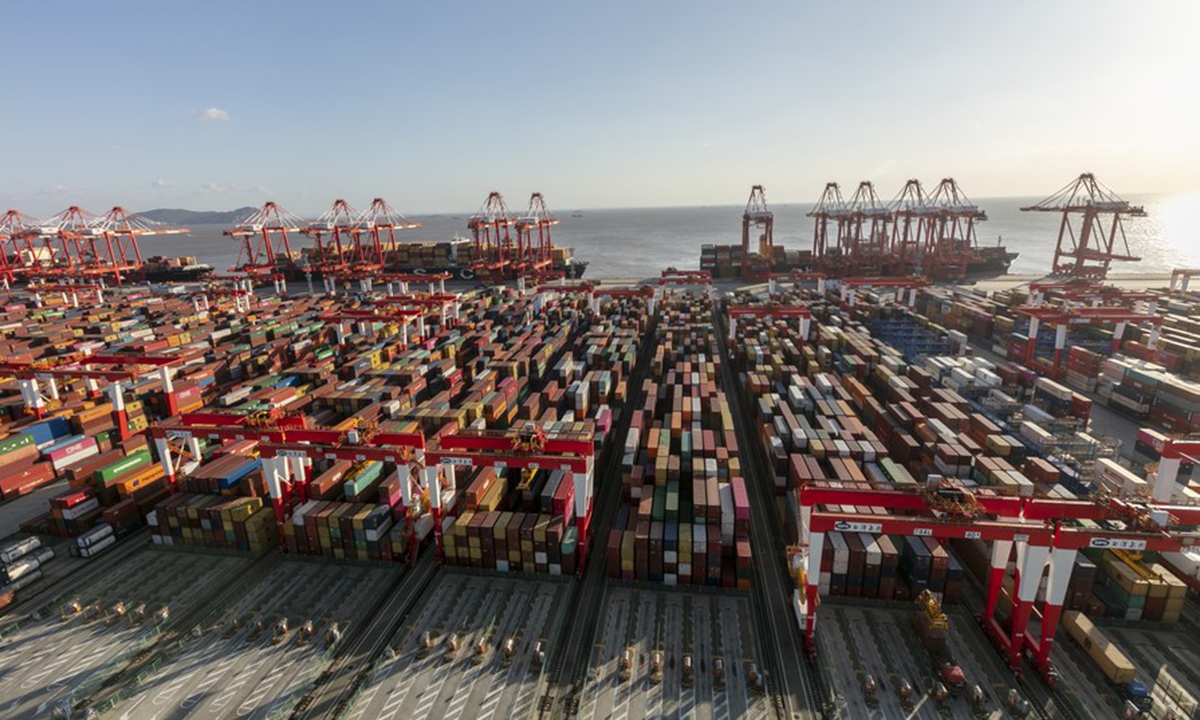
Soaring China-US trade points to ‘political chill, economic heat’
There is a high likelihood that China and the US will post a bilateral trade record this year, experts said, as their industries and economies are closely intertwined and cannot be decoupled, despite ongoing geopolitical spats and some US politicians' hue and cry intended to stem China's rise.
2021-04-21
























































































 京公网安备 11010802037854号
京公网安备 11010802037854号





